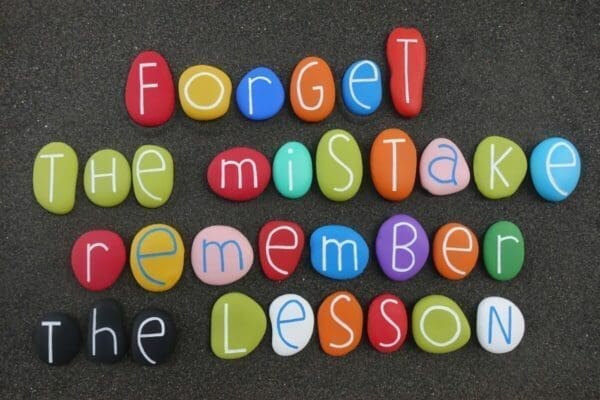Fix those Mistakes With These Tips!
Written by Darren A. Smith for KamCity.
No.1: Know Your Enemy Customer
Knowledge is Power
It would seem so obvious, almost childish or even churlish to have to point out that in our experience the single most common mistake that account managers make when sitting down in front of their buyers is a lack of detailed knowledge about them and/or the companies they work for – know the customer!
The very worst offenders are new, potential suppliers, often from oversea. Who seem to have the impression that buyers are there as welcoming gatekeepers to show them and help them gain access to the UK market.
o, Not to Help!
Buyers are not genial travel agents or helpful mortgage brokers with a cheery ‘how may I help you’ smile and ‘what can I do for you today’ badge on their lapels. They are highly commercial, very focused business executives whose job is to make money by selling as many products as possible.
Too many new, fledgling suppliers miss this crucial point. They rock up to initial (and usually final) meetings with buyers with little or no knowledge of the detailed workings of the retailer they are targeting as a future customer. It is simply not enough to have a box of beautifully prepared samples!
Of course, yes they know who they are meeting with, the name of the main brand fascia but we kid you not the number of times we have been asked ‘so how many stores do you have?’, ‘do you operate convenience stores?’, ‘can we supply on a weekly order basis to a single central depot please?’

Do Some Research! – Know Your Customer
It simply beggar’s belief that in this day and age of the internet, potential suppliers cannot or do not take the time to do some basic research into the company they are targeting as a future business partner. It is toe curlingly embarrassing for the buyer to be asked such inane, straightforward questions and builds absolutely no confidence or credibility in the supplier’s ability to supply.
You Need an In-Depth Understanding of How They Operate
As an absolute minimum, new potential suppliers must understand the supply chain they are hoping to enter. How will they meet the demands of the retailer’s stock and order supply chain system? This is especially important in fresh and chilled foods where the demands on a small new or startup supplier are considerable and often insurmountable. Wave deliveries, up to 3 or maybe 4 a day, 2 to 4 hour order to delivery lead times, double digit numbers of RDC’s (regional distribution centres) to get trucks to, super strict temperature and code life requirements, and stringent penalties if you make any sort of mistake.
Once you have the knowledge and confidence you can meet the supply chain requirements of the retailer you are hoping to sell into. You need to understand which channels you want to supply and how those channels work. Be it their superstore estate, their convenience estate or their home shopping and online operations.
What ranges are stocked currently in each? Are their opportunity gaps for you and your products? What shopper and consumer needs are you meeting? What is your ongoing activation and marketing plan to support your products? Which category drivers are you targeting? (if you want to know more or just want to know then read next months article!)
So, What About You?
Now for the vast majority of you reading this article you will not fall into the trap of or fall for the ineptitude of not having a full and detailed knowledge of your customers.
You will either be ongoing, existing suppliers who by the nature of the fast paced day to day operations of supermarket retailing will need to know how they operate. Or you will be a switched on new potential supplier who has carefully researched your potential market. And the retailers you want to target as customers and routes to that market.
However, you can still make mistakes. Or if not at the very least improve upon what you are currently doing to make a greater beneficial impact with your buyers and so enhance your business with them.
Water Will Always Find the Easiest Route – So Should You
I was often asked as a buyer by some of my national account managers. ‘So please tell me how can I do more business with you, what would make me better than all the rest?’ My very simple and genuinely honest answer was always; ‘business is like a stream or a river, it will always flow down the path of least resistance. If you make doing business with me simpler and easier than anyone else, then you will get the most of my business’.
Of course you have to be at the races in terms of product, quality, price, investment, brand strength, innovation etc. But genuinely those national account managers working for those suppliers that knew my business almost better than me. And made my busy, stressful life easier, always got rewarded with a bigger slice of the category pie.

An Easy Life – Know Your Customer
So how do you make a buyer’s life easy? In the very simplest terms, a bit like the stock market they hate nasty surprises.
Whilst not their number one KPI, service level is guaranteed to ruin a buyer’s day if it is not where it needs to be – and these days that’s 99.5% plus!
So, if you have a truck that turns over on the M6 one night and service levels of your on promotion product in Scotland are at 60%. Do get that early morning text in before your buyer gets to the office. They won’t thank you for it, their morning will be ruined. But they will tuck away somewhere at the back of their busy brains that you were the account manager that didn’t let them walk into a surprise barrage of email and telephone angst from irate Scottish store managers.
Knowing their business almost better than they do is always a great way of permanently endearing a buyer to his or her account manager. Their businesses are truly complex, intricate beasts. With a myriad of processes, procedures, departments and systems to navigate to make even the simplest in store changes.
Part of the Furniture

Many younger, less experienced buyers may themselves not knowing ‘the system’ and how it works yet alone how to ‘play it’.
The national account old hack who almost camps out in reception, is as ingrained as the furniture and part of the woodwork and who knows every short cut in the book is gold dust to any young, ambitious, aspiring buyer who wants to get noticed and get on.
Every supermarket head office has them. That small cluster of national account managers who have been there, seen it, done it, got the medals and know what to do, who to talk to, when and how to make things happen.
It takes time, effort, energy and perseverance but we have all seen examples. Even in this data decision driven age, where a savvy, on the ball account manager can get his or her products punching way above their true market share weight.
Don’t Forget the Basics – Know Your Customer
It is often the simplest of things that leave the right or more often wrong impression in your meetings with supermarket buyers.
Getting their name right for example would you think be a basic requirement. But believe me it has happened. Not very endearing to be called a Kevin or Richard or even Dick – when you aren’t!
Building rapport is important, almost as important as building a business relationship. Rapport is that ability to socially interact in an almost invisible, fluid way that builds engagement, trust, respect and familiarity. It’s a difficult skill to judge and master. Those account managers who can carry it off flawlessly are gold dust to their respective employers. Those that can’t come across as awkward, embarrassing or even crass.
LinkedIn Do’s and Don’ts
LinkedIn is a wonderful tool. Within seconds you know your buyers full name, where they live, where they went to school and college. And where they have worked, how fast they have progressed and often their favourite hobby, sport and team.
Be very wary how you use this mine of information though. Think of it from your own perspective, how would like to be greeted with an in depth run-down of questions about your life, family, career and hobbies?
The key is judgement – judge how open your buyer is to the ice breaking conversation as you walk from reception to the meeting room or as you stand awkwardly in the elevator. Most buyers are natural extroverts and so love to talk and chat especially about themselves!
However, don’t press and harry them beyond where they are comfortable. You will know over time what is within and what is out of bounds. And even if how well City or Spurs did at the weekend remember – and find out – they may just be a massive rugby fan!
Old News is Bad News
You know just how fast paced their businesses are, you supply them to within quite incredible tolerances. However, it is sometimes easy to forget just how faced paced and how quickly they can change.
You as manufacturers, even of short shelf life chilled products, will potentially still think and plan in terms of weekly or monthly periodic cycles because that is how your business is set up.
Your customers however think by the minute and hour. Store managers receive sales updates by category every two hours or so through the day on their smartphones and tablets. By department, they see sales day on day, week on week, year on year. Consequently micro manage the store assortment for maximum sales and minimum waste and cost.
Buyers think and plan daily and weekly. Daily sales, profit and service levels are the normal big three first things they look at each day. In produce and chilled foods, speed of decision making and response to weather changes and trading patterns is the difference between almost hitting budgets and massively missing them.
So to be their go to account manager. The one that makes their life just that little bit easier than all the rest, you need to be on top of every single impact and change to their category performance. Weather, bank holidays, seasonal events, pay days, elections etc. etc. etc. And most importantly providing them with the solutions to the problems those fast moving issues present them.
And Finally Know Your Customer
One final top tip to be the up to the minute, on the ball, responsive, proactive account manager.
When you are sitting in their reception – inevitably for 20 minutes beyond the appointment time – take the time to read the news – NamNews!
Grocery retailing is evolving at a frightening pace – planned mergers, banned mergers, takeovers, customer service initiatives, checkout less stores, hirings and firings . You never know who may have just bought who, who has divested of what or even who has just got a bullet. Better to know before you walk into that meeting room and potentially make a chump of yourself!




